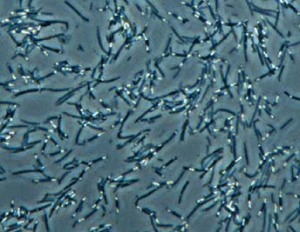 By now, many of you have heard of something called “Mersa” …. well, technically it’s MRSA or methicillin resistant Staphylococcus aureus. “Staph” as it is commonly called, is a ubiquitous bacteria that causes skin infections such as impetigo (yellow crusted patches on the skin) or abscesses (large boil-like lesions).
By now, many of you have heard of something called “Mersa” …. well, technically it’s MRSA or methicillin resistant Staphylococcus aureus. “Staph” as it is commonly called, is a ubiquitous bacteria that causes skin infections such as impetigo (yellow crusted patches on the skin) or abscesses (large boil-like lesions).
Traditionally, Staph infections are treated with penicillin antibiotics (such as Methicillin) or penicillin related antibiotics. MRSA, however, is resistant and untreatable with these traditional antibiotics and needs to be treated with alternative antibiiotics to which it is susceptible. Prompt medical attention is necessary as MRSA infections can progress rapidly and produce significant illness, especially if it enters the bloodstream and involves internal organs.
There are two forms of MRSA: community acquired MRSA and hospital acquired MRSA. Community acquired MRSA infections are the types of infections patients develop out in the community rather when they are in the hospital and fortunately, community acquired MRSA is still susceptible to several oral antibiotics. Hospital acquired MRSA, however, will usually require intravenous antibiotics to be adequately treated.
MRSA can be spread by skin to skin contact, sharing close quarters, and contacting contaminated surfaces such as towels, countertops, and razors. MRSA outbreaks have been reported to occur in schools, military barracks, and sports teams due to close contact. The past decade has seen a huge rise in the number of MRSA infections in the U.S. and cases are now emerging in South Asia as well.
To minimize risk of exposure to MRSA, avoid sharing razors or towels, wash your hands frequently, and always wipe down gym equipment before use. Be especially vigilant if you have breaks or cuts in your skin and keep these areas covered with a bandage. If you suspect you have an MRSA infection, which usually presents as a red painful boil that may be mistaken for a spider bite, see your physician right away. See the link below for more information and some images of MRSA infections.
http://www.webmd.com/skin-problems-and-treatments/ss/slideshow-closer-look-at-mrsa